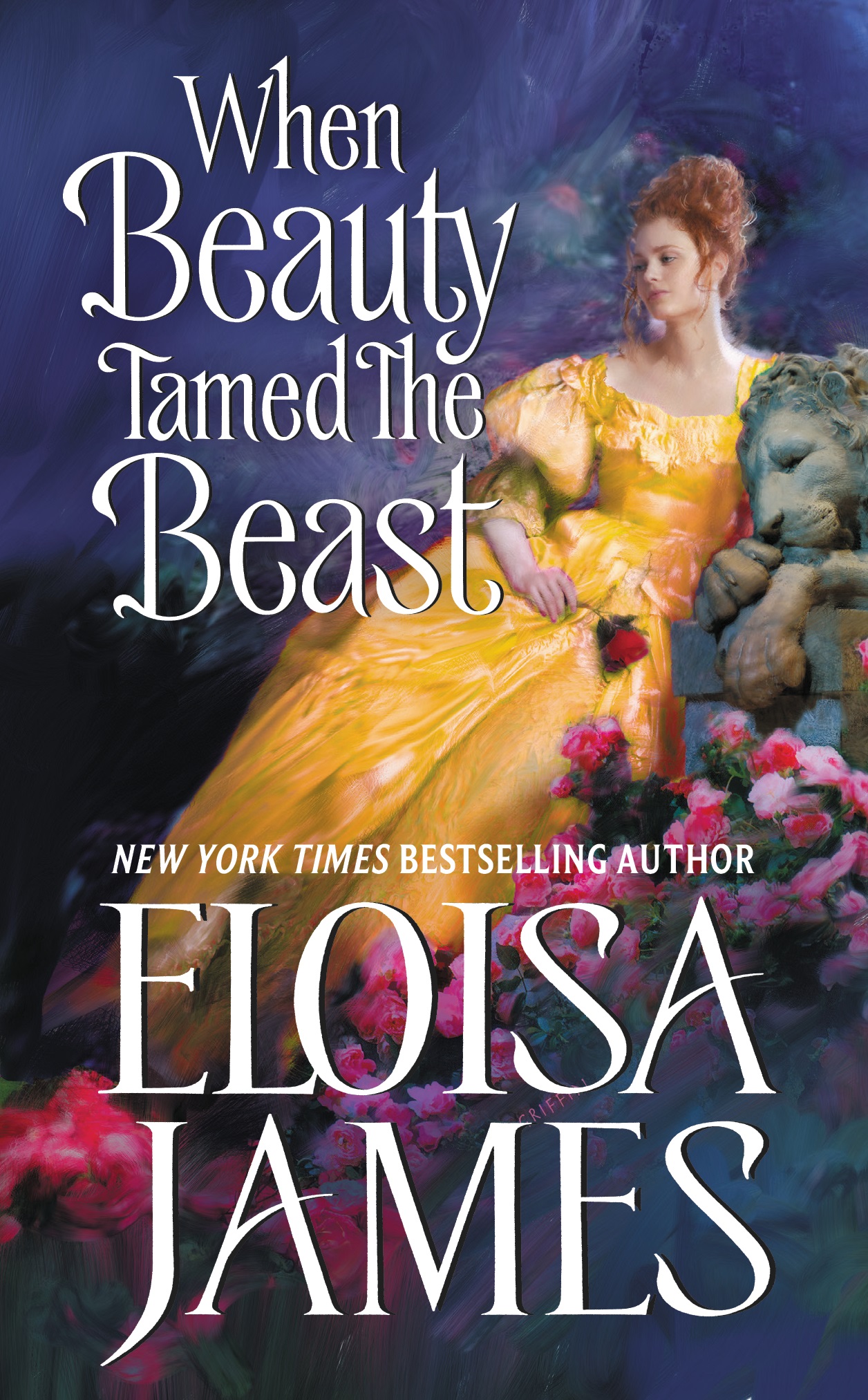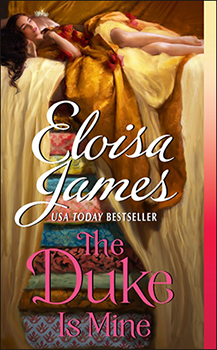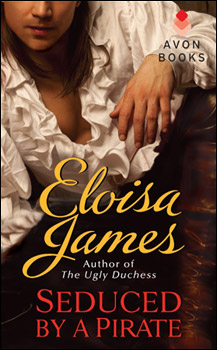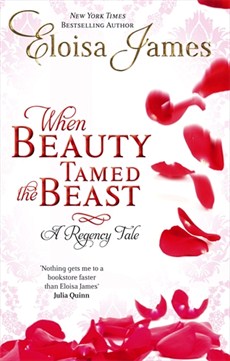When Beauty Tamed the Beast
Book 2 in the Fairy Tales Series
Piers Yelverton, Earl of Marchant, lives in a castle in Wales where, it is rumored, his bad temper flays everyone he crosses. He’s a Beast. Miss Linnet Thynne is one of the most exquisite young ladies ever to grace London’s ballrooms. She’s a Beauty. But wait—there’s more! Piers is a doctor: brilliant, lame, and impossible to get along with. There’s a version of him on Fox TV, named after a habitation. Linnet has been involved in a scandalous flirtation with a prince, and everyone in the ton thinks she’s carrying a royal child: she needs a husband.
Linnet estimates it will take two weeks—at the outside—to bring the earl to his knees. Piers knows that he will never fall in love, and definitely never marry.
I love writing novels, but this novel was a particularly joyful experience. I’ve never had so much fun—and not just because I’m a House, M.D. fan either. I hope you love this second entry in my “Happily Ever After” Fairy Tales just as much as I do. —Eloisa

When Beauty Tamed the Beast
Book Extras

Inside When Beauty Tamed the Beast
If you’ve never seen the Fox T.V. show, House, M.D., then you are missing a treat. It was while watching Hugh Laurie’s brilliant performance as an irascible, egotistical doctor that I started wondering what it would be like to be a doctor back in the 1800s—with just that same amount of self-assured arrogance. A bit of digging led to a historical doctor who was pleasingly similar. So although my story (and Piers) veered wildly from House, my initial inspiration for Piers came from the television show.
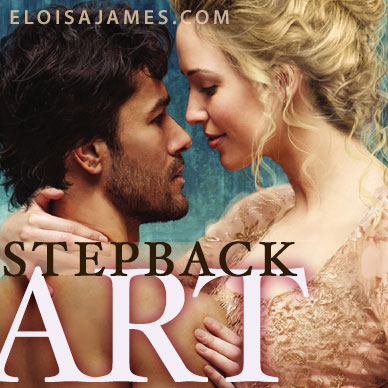
Stepback for When Beauty Tamed the Beast
Enjoy the stepback for When Beauty Tamed the Beast.

Meet Eloisa’s Rescue Doxie, Lucy
Watch Eloisa’s rescue dachshund, Lucy, help promote When Beauty Tamed the Beast.
Fairy Tales Collectible Card
Eloisa made up these gorgeous collectible cards for readers to celebrate her Fairy Tales. With Kate and Linnet on one side and Olivia, Theodora, and Edie on the other, this 5×7 can be yours. And this isn’t the only gorgeous card to be had!

When Beauty Tamed the Beast
Reviews
"...a breathtaking addition to James's series of reimagined fairy tales."
— Library Journal
"There are only a handful of romance authors who could have written a touching, fun, and engaging story by blending a fairytale and a television show. Eloisa James is obviously one of them."
— The New York Journal of Books
"With an amusing cast of characters and two principals who are both beautiful and beastly at times, this is an enrapturing bedtime story."
— Bookpage
"When Beauty Tamed the Beast has a story that grips you from the first chapter, characters you believe are real people (who are worth caring about), and a beautifully detailed picture of life three centuries ago.
— The Connecticut Post
When Beauty Tamed the Beast
Enjoy an Excerpt
Jump to Ordering Options ↓
Listen to an Audio Excerpt ↓
Chapter One 
Once upon a time, not so very long ago…
Beautiful girls in fairy stories are as common as pebbles on the beach. Magnolia-skinned milkmaids rub shoulders with starry-eyed princesses and, in fact, counting two eyes in each bright-eyed damsel would result in a whole galaxy of twinkling stars.
That sparkle makes it all the more sad that real women rarely live up to their fictional counterparts. They have yellowing teeth, or spotty skin. They have the shadow of a mustache, or a nose so big that a mouse could ski down it.
Of course there are pretty ones. But even they are prone to all the ills “that flesh is heir to,” as Hamlet had it in a long-ago complaint.
In short, it’s a rare woman who actually outshines the sun. Let alone all that business about pearly teeth, the voice of a lark, and a face so beautifully shaped that angels would weep with envy.
Linnet Berry Thrynne had all of the above, except perhaps the claim to lark-like melody. Still, her voice was perfectly agreeable, and she had been told that her laughter was like the chiming of golden bells and (though not larks) linnet songs were often mentioned.
Without even glancing at the glass, she knew that her hair was shining, her eyes were shining, and her teeth—well, perhaps they weren’t shining, but they were quite white.
She was just the sort who could drive a stable boy to heroic feats, or a prince to less intrepid acts such as whacking through a bramble patch merely to give her a kiss. None of which changed a basic fact:
As of yesterday, she was unmarriageable.
The calamity had to do with the nature of kisses, and what kisses are purported to lead to. Though perhaps it’s more accurate to point to the nature of princes. The prince in question was Prince Augustus Frederick, Duke of Sussex.
He had kissed Linnet more than once; in fact, he had kissed her a great many times. And he had vehemently declared his love for her, not to mention thrown strawberries at her bedchamber window late one night (which had made an awful mess and had driven the gardener into a fury).
The only thing he hadn’t done was offer his hand in marriage.
“It’s a shame I can’t marry you,” he had said apologetically, when the scandal broke the evening before. “We royal dukes, you know…can’t do everything we’d like. My father is slightly deranged on the subject. Really, it’s most unfortunate. You must have heard about my first marriage; that one was annulled because Windsor decided Augusta wasn’t good enough, and she’s the daughter of an earl.”
Linnet was not the daughter of an earl; her father was a viscount, and not a very well-connected one at that. Not that she’d heard of the prince’s first marriage. Everyone who had watched her flirting with him in the last few months had unaccountably forgotten to tell her that he was apparently prone to courting those he couldn’t—or shouldn’t—marry.
The prince had bowed sharply, turned, and abruptly left the ballroom, withdrawing to Windsor Castle—or wherever it was that rats went when the ship sank.
This had left Linnet alone but for her dour chaperone and a ballroom of gentlepersons, a circumstance that led her to quickly realize that a great many maidens and matrons in London were eagerly—if not gleefully—certain that she was a hussy of the first degree.
Within moments of the prince’s retreat, not a soul would meet her eyes; she was faced with a sea of turned backs. The sound of upper-class tittering spread all around her like the hissing of a gaggle of geese preparing to fly north. Though, of course, it was she who had to fly—north, south, it didn’t matter as long as she fled the scene of her disgrace.
The unfair thing was that she wasn’t a hussy. Well, not more than any girl bowled over by a prince.
She had enjoyed snaring the greatest prize of them all, the blond and winsome prince. But she hadn’t had any real hope that he would marry her. And she certainly would not have given her virginity to a prince without having a ring on her finger and the approval of the king.
Still, she had considered Augustus a friend, which made it all the more painful when he didn’t pay her a call the morning following her humiliation.
Augustus wasn’t the only one. In fact, Linnet found herself staring out of a front window of her townhouse, the better to convince herself that no one was coming to call. No one. Not a soul.
Ever since she’d debuted a few months earlier, her front door had been the portal to the Golden Fleece, i.e., her dowered, delectable self. Young men pranced and trotted and strolled up that path, leaving cards and flowers and gifts of all kinds. Even the prince had lowered himself to make four morning calls, an unheard-of compliment.
But now…that path was nothing more than a row of flagstones shining in the sunlight.
“I simply don’t believe this has come out of nothing!” her father said now, from somewhere behind her.
“I was kissed by a prince,” Linnet said dryly. “Which might have counted as nothing, if we hadn’t been seen by Baroness Buggin.”
“Kissing—pah! Kisses are nothing. What I want to know is why it is being reliably reported that you are carrying a child. His child!” Viscount Sundon came, stood at her shoulder, and looked with her at the empty street.
“Two reasons. Neither of which involves a baby, you’ll be happy to learn.”
“Well?”
“I ate a bad prawn at Lady Brimmer’s morning musicale last Thursday.”
“So?” her father asked.
“It made me ill,” Linnet told him. “I couldn’t even make it to the ladies’ retiring chamber. I threw up in a potted orange tree.” She shuddered a little at the mere memory.
“Uncontrolled of you,” the viscount commented. He hated bodily processes. “I collect that was taken as a sign of childbirth?”
“Not childbirth, Papa, the condition that precedes it.”
“Of course. But you do remember when Mrs. Underfoot spewed in the throne room, narrowly missing His Majesty, the King of Norway? That was no prawn, nor a baby either. Everyone knew the lady had drunk herself into a standstill. We could put it about that you’re an inebriate.”
“Would that solve my problem? I doubt many gentlemen wish to marry a drunk. At any rate, it wasn’t just the prawn. It was my gown.”
“What about your gown?”
“I wore a new ball dress last night, and apparently my profile gave people cause to think that I was carrying a child.”
Her father swung her around and peered at her middle. “You don’t look any different to me. A bit chilly around the shoulders, perhaps. Need you show quite so much bosom?”
“Unless I want to look like a fussocking matron,” Linnet said with some asperity, “then yes, I do need to show this much bosom.”
“Well, that’s the problem,” Lord Sundon said. “You look like Bartholomew-ware. Damn it, I specifically told your chaperone that you had to look more prudish than anyone else in the room. Do I have to do everything myself? Can no one follow simple instructions?”
“My ball gown was not revealing,” Linnet protested, but her father wasn’t listening.
“I have tried, God knows how I’ve tried! I postponed your debut, in the hopes that maturity would give you poise in the face of the ton’s undoubted scrutiny, given your mother’s reputation. But what’s the good of poise if your neckline signals you’re a wanton?”
Linnet took a deep breath. “The affair had nothing to do with necklines. The gown I wore last night has—”
“Affaire!” her father said, his voice rising. “I raised you with the strictest of principles—”
“Not affaire in the French sense,” Linnet interrupted. “I meant that the disaster was provoked by my gown. It has two petticoats, you see, and—”
“I want to see it,” Lord Sundon announced, interrupting in his turn. “Go and put it on.”
“I can’t put on a ballgown at this hour in the morning!”
“Now. And get that chaperone of yours down here as well. I want to hear what Mrs. Hutchins has to say for herself. I hired her specifically to prevent this sort of thing. She put on such a priggish Puritanical air that I trusted her!”
So Linnet put on the ball gown.
It was designed to fit tightly over her breasts. Just below, the skirts pulled back to reveal an under-dress of charming Belgium lace. Then that skirt pulled back, showing a third layer, made from white silk. The design looked exquisite in the sketchbook at Madame Desmartins’s shop. And when Linnet had put it on last night, she had thought the effect lovely.
But now, as her maid adjusted all those skirts while Mrs. Hutchins looked on, Linnet’s eyes went straight to where her waist ought to be—but wasn’t. “My word,” she said, a bit faintly. “I really do look pregnant.” She turned to the side. “Just look how it billows out. It’s all the pleating, right here at the top, under my breasts. I could hide two babies under all that cloth.”
Her maid Eliza didn’t venture an opinion, but her chaperone showed no such reticence. “In my opinion, it’s not the petticoats so much as your bosom,” Mrs. Hutchins stated. Her voice was faintly accusing, as if Linnet were responsible for her cleavage.
Her chaperone had the face of a gargoyle, to Linnet’s mind. She made one think of the medieval church in all its stony religious fervor. Which was why the viscount had hired her, of course.
Linnet turned back to the mirror. The gown did have a low neckline, which frankly she had considered to be a good thing, given how many young men seemed unable to drag their eyes above her chin. It kept them occupied and gave Linnet license to daydream about being somewhere other than a ballroom.
“You’re overly endowed,” Mrs. Hutchins went on. “Too much on top. Put together with the way the dress billows out, and you look as if you’re expecting a happy event.”
“It wouldn’t have been happy,” Linnet pointed out.
“Not in your circumstances.” Mrs. Hutchins cleared her throat. She had the most irritating way of clearing her throat that Linnet had ever heard. It meant, Linnet had learned over the last few months, that she was about to say something unpleasant.
“Why on earth didn’t we see it?” Linnet cried with frustration, cutting her off before she could launch her criticism. “It seems so unfair, to lose my reputation and perhaps even my chance at marriage, just because this gown has too many pleats and petticoats.”
“Your manners are at fault,” Mrs. Hutchins said. “You should have learned from your mother’s example that if you act like a hurly-burly, people will take you for a jade. I tried to give you tips about propriety as best I could over the last months, but you paid me no mind. Now you must reap what you have sown.”
“My manners have nothing to do with this dress and its effect on my figure,” Linnet stated. She rarely bothered to examine herself closely in the glass. If she had just looked carefully, if she had turned to the side…
“It’s the neckline,” Mrs. Hutchins said stubbornly. “You look like a milking cow, if you’ll excuse the comparison.”
Linnet didn’t care to excuse it, so she ignored her. People should warn one of the danger. A lady should always look at herself from the side while dressing, or she might discover that all of London suddenly believed her to be carrying a child.
“I know that you’re not enceinte,” Mrs. Hutchins continued, sounding as if she were reluctant to admit it. “But I’d never believe it, looking at you now.” She cleared her throat again. “If you’ll take a word of advice, I’d cover that chest of yours a bit more. It’s not seemly. I did try to tell you that several times over the last two months and twenty-three days that I’ve been living in this household.”
Linnet counted to five and then said, stonily, “It’s the only chest I have, Mrs. Hutchins, and everyone’s gowns are designed like this. There’s nothing special about my neckline.”
“It makes you look like a light frigate,” she observed.
“What?”
“A light frigate. A light woman!”
“Isn’t a frigate a boat?”
“Exactly, the type that docks in many harbors.”
“I do believe that it is the first jest you’ve ever told me,” Linnet said. “And to think I was worried that you might not have a sense of humor.”
After that, the corners of Mrs. Hutchins’s mouth turned down and she refused to say anything more. And she refused to accompany Linnet back to the drawing room. “I’ve naught to do with what’s come upon you,” she said. “It’s the will of heaven, and you can tell your father I said so. I did my best to instill principles in you, but it was too late.”
“That seems rather unfair,” Linnet said. “Even a very young light frigate should have the chance to dock atone harbor before she’s scuppered.”
Mrs. Hutchins gasped. “You dare to jest. You have no idea of propriety—none! I think we all know where to put the blame for that.”
“Actually, I think I have more understanding of propriety and its opposite than most. After all, Mrs. Hutchins, I, not you, grew up around my mother.”
“And there’s the root of your problem,” she said, with a grim smile. “It’s not as if her ladyship were a felt-maker’s daughter who ran away with a tinker. No one cares about that sort. Your mother danced like a thief in the mist while everyone was watching her. She was no private strumpet; she let the world see her iniquity!”
“A thief in the mist,” Linnet repeated. “Is that biblical, Mrs. Hutchins?”
But Mrs. Hutchins pressed her lips together and left the room.
end of excerpt
When Beauty Tamed the Beast
by Eloisa James
is available in the following formats:

→ As an Amazon Associate I earn from qualifying purchases. I also may use affiliate links elsewhere in my site.


